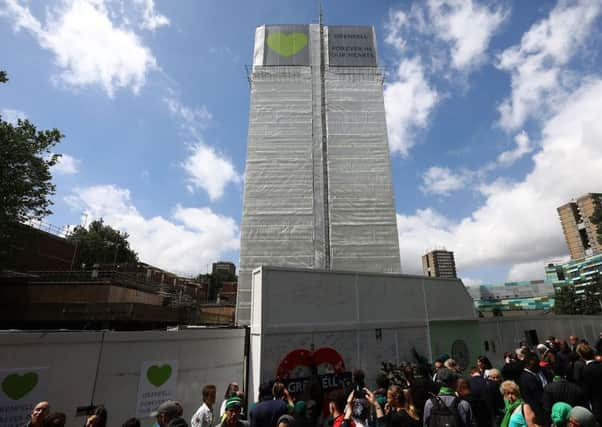Column: It is time to end this housing crisis


Architect Berthold Lebetkin, who designed some of London’s most renowned council housing stock, famously said: “Nothing is too good for ordinary people.”
Lebetkin was designing social housing at a time when it was treated as the first of the social services.
Advertisement
Hide AdAdvertisement
Hide AdIndeed, all political parties recognised good council housing as an investment rather than an expense and competed in election manifestos to commit to building housing stock across the 1940s, 50s and 60s.
However, fast forward to present times and we are amidst a housing crisis in an environment where public land is being sold off at an alarming rate, the levels of rough sleeping and homelessness are at a record high.
According to the Joseph Rowntree Foundation, 63 per cent of single adults in their 20s are still living at home due to high housing costs and with dim prospects of getting on the property ladder.
Last year the Chartered Institute of Housing launched their ‘Rethinking Social Housing Project’ and highlighted a national survey which shows that 80 per cent of people in England agree that social housing is important.
Advertisement
Hide AdAdvertisement
Hide AdSocial historian John Boughton, author of Municipal Dreams, identifies the point in time when council housing was devalued as a key part of social policy; when Margaret Thatcher entered 10 Downing Street and the Housing Act of 1980 passed legislation for the ‘Right to Buy’ scheme.
The vision expounded was the ideal of home ownership and the reduction of the state’s role in people’s lives.
The reality, however, was that millions of council housing stock was lost to private landlords and building simply stopped.
It is obvious that people tend to thrive when they have affordable and secure housing, but instead we no longer celebrate and invest in this aspiration.
Advertisement
Hide AdAdvertisement
Hide AdThere are conversations and debates about ‘affordable’ housing but affordable to whom?
The private rented sector is poorly regulated with many a horror story of genuinely awful landlords skimping on their responsibilities.
According to the London School of Economics, the UK has the most poorly regulated private rented sector across Europe.
Too many people are spending a disproportionate amount of their income on rent.
Advertisement
Hide AdAdvertisement
Hide AdA report by the Nationwide Foundation last year evidenced that due to a lack of social housing stock around one million people on low incomes are at risk of being put into dire poverty due to expensive tenancy costs in the private sector.
One of the urgent solutions to the housing crisis which is currently being talked about is the building of more housing stock.
The other sets of proposed solutions include tighter regulation of the private rented sector with rent caps and tenant unions, and active enforcement of legal requirements for health and safety including due diligence around repairs in a reasonable time.
Generation Rent, a campaigning organisation for private renters, is calling for a national register of landlords to stop the worst abuses from the so-called ‘slumlords’ that allow students to live in poor quality properties or would rather commit a ‘revenge eviction’ than repair a boiler.
Advertisement
Hide AdAdvertisement
Hide AdThe original post-war 1945 vision put forth by the then health and housing minister Aneurin Bevan was a ‘living tapestry of a mixed community’ which would provide high quality and varied social housing for a range of needs.
This vision needs to be re-discovered by any future Government that is truly committed to the wellbeing of its citizens.
The horrific tragedy that befell the residents of Grenfell Tower in 2017 is a case in point.
It is 2019 and yet not all surviving residents have been rehomed.
We have seen the awful consequences of putting profit before people.